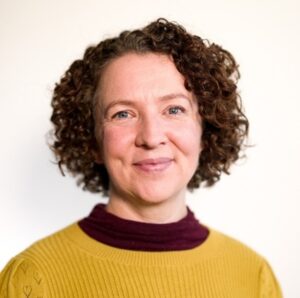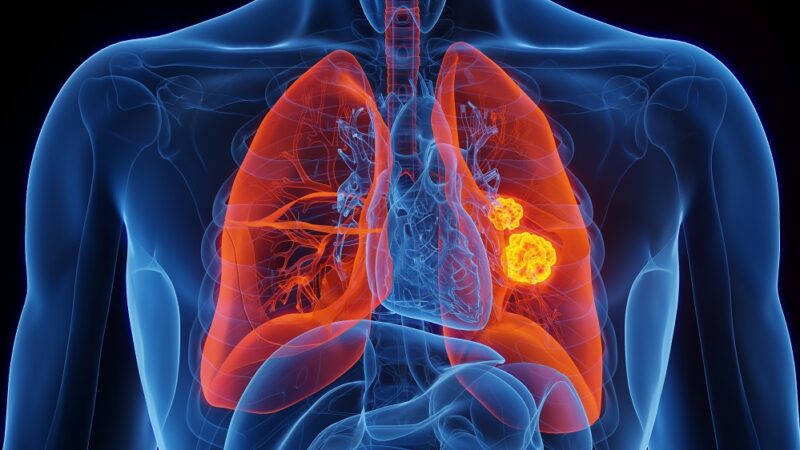Delivered over two afternoon sessions, Dr Elaine Vickers – a leading independent educator on the science of new cancer treatments – will guide you through many of the most relevant topics relating to modern systemic treatments for non-small cell lung cancer (NSCLC).
The first session will focus on the gene faults that drive many NSCLCs and on the targeted treatments that exploit these faults, such as inhibitors of EGFR, ALK, ROS1, B-Raf, HER2, MET, and RET.
The second session explores cancer’s relationship with the immune system and focuses on the checkpoint inhibitor group of immunotherapies, which include PD-1, PD-L1 and CTLA-4 targeted antibody therapies.
Audience
Dr Vickers’ goal is to explain the science that underpins each treatment. She also hopes to provide learners with a broad understanding of why treatments work well for some patients but not for others.
This half day course is ideal for research nurses, clinical nurse specialists, pharmacists and clinical trials coordinators. It may also be of interest to other healthcare professionals involved in the diagnosis and treatment of people with lung cancer, and to junior doctors.
ACCEND
NHS England’s ACCEND Programme aims to support the development of a skilled and knowledgeable cancer workforce.
This course supports Component 3 of the ACCEND pathway, the Education Framework.
Specifically, this course’s objectives and learning outcomes meet core cancer knowledge needs at both the ‘Foundation of Cancer Care’ and ‘Fundamentals of Cancer Care’ levels.
The course will enhance learners’ understanding of cancer biology, the mechanism of action of systemic cancer treatments, and the use of biomarkers to select the best treatments for each patient.
The knowledge gained through this course will empower staff to feel confident when communicating with patients and their families, and with clinical and non-clinical colleagues.
Detailed description
Session 1
Presentation 1 – Lung cancer cell biology and genetics
- The cell of origin of various types of lung cancer
- How and why lung cancer develops, and the differences between lung cancers in smokers and non-smokers
- The faulty genes and proteins that drive adenocarcinomas and squamous cell carcinomas
Presentation 2 – Treatments that target EGFR
- The role of EGFR and signalling pathways in NSCLC
- EGFR gene mutations that create sensitivity to EGFR inhibitors
- EGFR inhibitors: 1st, 2nd, and 3rd generation, and beyond
Presentation 3 – More targets and treatments
- ALK & ROS-1 inhibitors
- Targeting B-Raf, HER2, MET, RET, NTRK, K-Ras G12C
- What about antibody-drug conjugates?
Session 2
Presentation 4 – Cancer’s relationship with the immune system
- How cancer’s relationship with the immune system changes over time
- Mechanisms of immune evasion by cancer cells
- Introduction to immunotherapy
- When is a targeted therapy or immunotherapy more likely to work?
Presentation 5 – Introduction to immune checkpoint inhibitors
- Introduction to checkpoint proteins on T cells
- Mechanism of action of immune checkpoint inhibitors
- Combining checkpoint inhibitors with other treatments
Presentation 6 – How can we predict who will benefit from them?
- Measuring PD-L1 protein levels and tumour mutation burden
- Preparing the patient: antibiotics, diet, and other influences on the microbiome
Presentation 7 – Experience from trials
- What have we learned from clinical trials with PD-1, PD-L1, and CTLA-4-targeted antibodies
Pre-course preparation
Elaine has created two YouTube playlists about cancer biology and cancer treatments to help learners get the most out of her courses. Each playlist contains 10 videos between 3 and 8 minutes long.
She advises “If you’re short on time and you’re not sure about the relationship between DNA, genes and proteins, I would suggest watching the Cells, DNA, genes and chromosomes and From genes to proteins videos from the Cancer Basics playlist as a priority. Also, if you’re new to cancer, I’d recommend the Mutations cause cancer video and, in order to understand how cancer cells interact with the cells around them, watch the Tumours are complicated places video.”
“In the Cancer Treatments playlist, there are videos about all the various treatments I’ll be mentioning. The two I’d prioritise explain why we use small chemical compounds (small molecules) and antibodies as cancer treatments. If you have more time, do also watch the videos on kinase inhibitors and immune checkpoint inhibitors.”
About Elaine Vickers

Elaine Vickers of Science Communicated Ltd has a PhD in Molecular Biology. She has worked as a cancer educator for over twenty years.
She is passionate about demystifying the science behind cancer biology and the latest cancer treatments such as kinase inhibitors, monoclonal antibodies, and immunotherapies.
Elaine is experienced in teaching people with any level of scientific or medical knowledge. She particularly loves teaching nurses and other health professionals who might feel daunted by the idea of learning about cancer science.
Her book, A Beginner’s Guide to Targeted Cancer Treatments and Cancer Immunotherapy, is now in its second edition. The first edition was Highly Commended by the British Medical Association book awards.
Elaine also makes short educational videos on cancer biology and treatments, which you can find on her YouTube channel: https://www.youtube.com/@DrElaineVickers
Financial information
If you are employed by Newcastle Hospitals NHS Foundation Trust, you can use the coupon code NUTH at the checkout to make a provisional booking and you will need to arrange access to in-house development funding. Your booking will remain provisional until your request has been validated with a funding/study leave reference.
If you are not employed by the Newcastle Hospitals an online card payment is required at the point of booking. Alternatively, if you are to be funded by your employer an invoice can be requested by using the coupon code Invoice.
If you are a LET employee you will need to pay by card as we are unable to invoice LETs.
Please see Coupons for further information relating to coupon codes and how to use them at checkout.
Cancellation and refunds policy
Should you no longer be able to attend the event on the booked date, please contact the Academy as we may be able to offer an alternative date subject to an admin charge.
Should you still wish to cancel your booking, you or your employer will be charged as per the fees outlined below. Please contact [email protected]t to cancel your booking.
| Timescale | Fee paying course |
| Over 6 weeks | £25 admin charge |
| 2 to 6 weeks | 50% of course fee |
| 0 to 2 weeks | 100% of course fee |
If you do not attend on the day, you will be charged the full cost of the event place.
See our Terms & Conditions and Cancellations & Refunds pages for more details.
